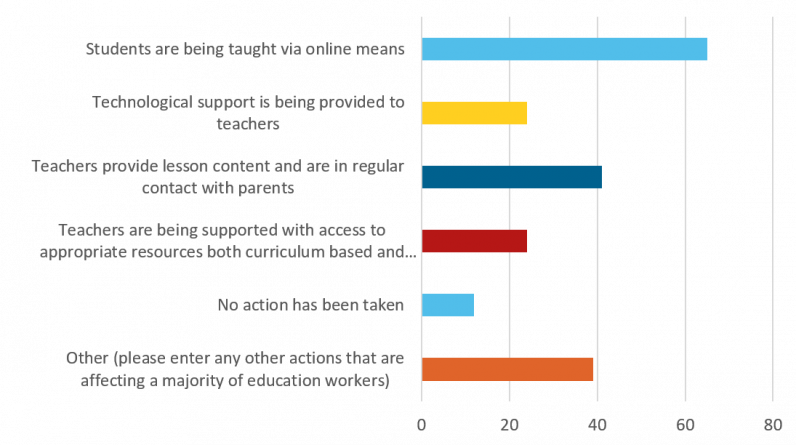The Impact and Implications of the COVID 19-Crisis on Educational Systems and Households
16 April 2020
The following findings illustrate the need for tailored policies that look at the delivery of learning (including resolving connectivity issues), the well-being of students and the challenges faced by households depending on their employment status (during confinement), income and demographics (e.g. single parents, migrants):
- Students’ emotional well-being and health are priorities.
- Aiming to replace teaching by eLearning is too easy. Remote learning demands appropriate hardware, software, and a high-speed internet connection. Beyond digital literacy challenges, teachers and student need to find new ways to communicate and use learning tools effectively. Offline learning material and special programmes for vulnerable students deserve consideration.
- Assistance structures for students from vulnerable groups have to be put in place immediately (e.g. helplines, online coaching, partial school re-openings for those lacking digital infrastructure, summer-school programmes) and individual support for students in need should continue throughout the coming school year.
- Assessment of learning could focus on overall performance. Options around postponing, adopting or putting off (final) exams are important to secure fair outcomes for future educational and employment pathways.
- Households with caring responsibilities are under severe pressure by containment measures. Workers need the right and financial compensation for extraordinary and prolonged full- or part-time leaves for care responsibilities. Essential workers need to be able to profit from partial care facilities and school openings, as well as lump sums for babysitters or tutors.
Download the briefing to read on.

Education International Covid-19 Survey results
Education International’s member survey to which 92 of its members responded shows a mixed bag when it comes to measures taken by governments during the crisis to minimise the impact on student education. Students are mostly taught via online means. Less than half of respondents said that teachers provide lesson content and are in regular contact with parents. Only 26% said that teachers are being supported with access to appropriate resources both curriculum based and pedagogical. On the positive side, only 13% said that no government action was taken. In addition, the survey shows that part-time and temporary teachers’ as well as education support professionals income has been significantly hit by the school closures.
